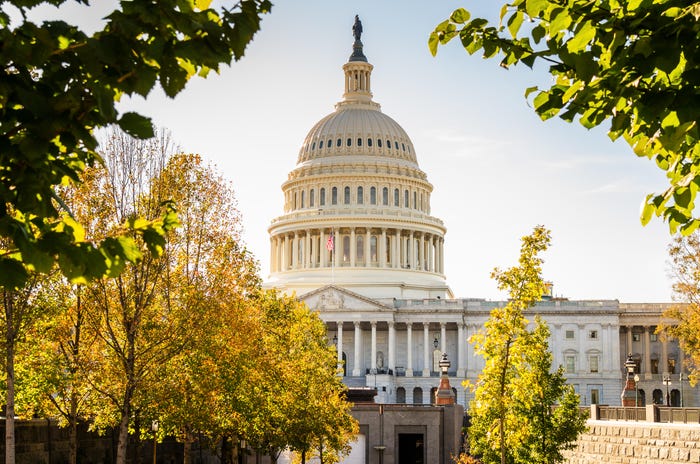Five takeaways from the House FCC oversight hearingFive takeaways from the House FCC oversight hearing

The House Energy & Commerce Committee held an FCC oversight hearing on Thursday, with a “Biden broadband takeover” theme, focusing largely on Republican concerns with the FCC’s efforts to reinstate Title II and enact digital discrimination rules.
The hearing also covered the FCC’s lapsed spectrum authority and the Biden administration’s spectrum policy, as well as funding shortfalls for the Affordable Connectivity Program (ACP) and the rip-and-replace program, which funds removal of Chinese vendors’ equipment from US communications networks.
Mostly, the three-hour hearing tread familiar, partisan ground, but it provided insight on a few important topics. Here are the main takeaways.
On the Affordable Connectivity Program
With the ACP expected to run out of funding by April 2024, and hopes growing dim that the House will satisfy a White House request to fund the ACP with $6 billion through 2024, multiple members of Congress pressed the Commissioners about the program’s importance, as well as oversight issues surrounding the ACP.
Notably, Rep. Yvette Clarke, a Democrat from New York, said she intends to introduce legislation to fund the ACP before the end of the year, though it remains unclear if that bill would gain Republican support.
Asked when the FCC will need to alert providers that they have to send notices to ACP customers about the benefit ending, FCC Chairwoman Jessica Rosenworcel indicated that would need to happen early in 2024.
We need Congress to continue to fund this program. If Congress does not, in April of next year, we’ll have to unplug households, and based on current projections it’ll be about 25 million households we will unplug from the Internet in April,” said Rosenworcel. “If we do that, early in the year we’ll have to let providers know that they’re gonna have to give notice to every one of those households, every one of those consumers who counts on this program. We will also have to indicate to the providers that they can no longer enroll new households, and we’ll have to work with our outreach coordinators to bring their efforts to an end.”
On oversight issues, both Rosenworcel and Republican Commissioner Brendan Carr spoke about needing to boot non-compliant service providers from the program. Earlier this fall, the FCC Office of Inspector General (OIG) released a report warning of a “significant” threat to the integrity of the program posed by dozens of providers that may have improperly claimed reimbursements.
“We have informally sought the advice of the Office of the Inspector General to make sure the integrity of this program is secure. And I also think, we got bad actors, we’ve got to kick them out of the program,” said Rosenworcel.
On net neutrality and Title II
One of the more theatrical topics of the morning was the FCC’s move to restore Title II authority over broadband providers. Discussions around this fell along partisan lines, with Republicans on the committee and FCC calling the move a threat to broadband investment overall.
“This heavy-handed regulatory approach was designed to regulate monopolies. But today’s competitive broadband market is far from a monopoly,” said committee Chairwoman Cathy McMorris Rodgers, a Republican from Washington, in a comment that would come as a surprise to millions of Americans with access to a single broadband provider. But McMorris Rodgers added that her point was made “apparent” by Rosenworcel’s decision to “forbear from 27 provisions in title two and more than 700 regulations” – including rate regulations.
On the net neutrality aspect of things, Rosenworcel was asked by Republican members if Democratic fears about the Internet being delivered “one word at a time” came true after net neutrality was overturned.
“No, but that’s a result of more than about a dozen states stepping in and developing their own net neutrality laws,” she answered.
Indicating fatigue around the issue, and an inevitable redo of this fight down the line, FCC Commissioner Nathan Simington, a Republican, urged Congress to act on the matter.
To read the complete article, visit Light Reading.


